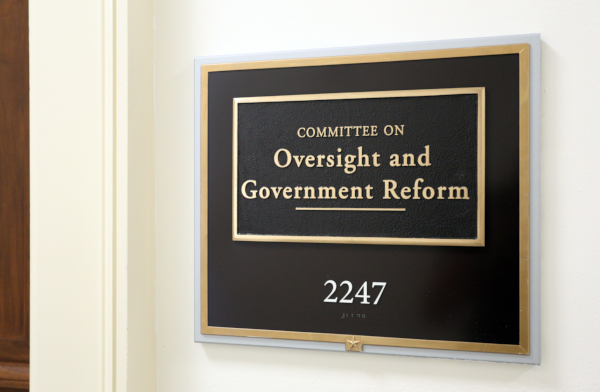Table Of Content

The Committee will also examine the increase in federal entitlement programs, with a focus on waste, fraud, abuse, and mismanagement within those programs. The Committee intends to conduct oversight of policies, strategies, and role in cybersecurity. This includes examining breaches of government, contractor, and private sector networks as well as the role federal agencies play in cyber incident threat intelligence, management and response, and cybersecurity risks to the private sector. The Committee will continue its efforts related to oversight of waste, fraud, abuse, and mismanagement of federal government spending.
House bill would shine a light on federal prisons’ dark problems
This oversight will focus on the impacts of the current ban on crude exports and the implementation of the liquefied natural gas (LNG) export program. The Committee will also conduct oversight of the Food and Drug Administration (FDA), with a focus on ensuring that FDA strikes the right balance between the availability of drugs and medical devices and patient safety. The Committee will examine the causes and effects of critical pharmaceutical drug shortages, recent increases in the price of certain generic drugs, and the policies and procedures in place to protect the public from the outbreak of dangerous or deadly diseases. The Committee will examine domestic and international efforts to better track aircraft and identify ways to close existing gaps in global positioning systems caused by the use of outdated technology. Currently, air traffic controllers rely on human pilots to track aircraft in areas where radar does not exist, including over the oceans. The Committee will also review the issuance of visas and passports, as well as other border control and security identification issues.
Comer Announces Hearing to Conduct Oversight Over OMB’s Operations
Activity fell sharply in the 115th Congress ( ), the first year of the Trump administration, under new Chair Trey Gowdy (R, S.C.), former chair of the House Select Committee on Benghazi. It has authority to investigate the subjects within the Committee's legislative jurisdiction as well as "any matter" within the jurisdiction of the other standing House Committees. The Committee on Oversight and Accountability is the main investigative committee in the U.S. The Committee will also conduct oversight on the Department of the Interior's regulatory responsibilities. The focus of this oversight will be the impact of the Department's regulatory and policy agenda and how these environmental laws affect private landowners, small businesses, and all public land users.
United States House Committee on Oversight and Accountability
The Committee's oversight will include, but not be limited to a review of U.S. military combatant commands, especially AFRICOM, SOUTHCOM, U.S. Agency for International Development, U.S. Institute of Peace, and the State Department. In particular, the Committee will monitor the status of reconstruction efforts in Haiti. The Committee has legislative jurisdiction over the District of Columbia, the government procurement process, federal personnel systems, the Postal Service and other matters.
Members, 118th Congress
The Committee will closely monitor the executive branch's efforts to stop IT projects that are not on target, streamline those that are wasteful, and work to ensure that inefficient legacy systems are decommissioned. The Committee will closely examine laws, regulations, and policies governing the Transportation Security Administration (TSA). The Committee's interagency jurisdiction allows for the examination of the effectiveness, efficiency, and cooperation of all U.S. Government agencies and departments with a role in national security and foreign operations. The Committee will review the process by which the 2020 Decennial Census will be conducted, its level of accuracy, and the appropriateness of the Decennial's overall budget. The successful planning of the 2020 Decennial Census will determine the level of funding in 2018, 2019, and 2020, the years that account for most of the Census Bureau's funding.
Chairman James Comer

The Committee's review will include the international standing of the United States, humanitarian assistance, development programs, and public diplomacy efforts. Current challenges facing the executive branch, coupled with the deficit, require a new approach to government. The Committee will examine the major structural and organizational issues that cause government waste and redundancy. The Committee will work to modernize the federal personnel system, and better align worker compensation with the private sector.
Wrap Up: GSA Must Be Held Accountable for Waste and Misuse of Taxpayer Dollars - United States House Committee ... - House Committee on Oversight and Reform
Wrap Up: GSA Must Be Held Accountable for Waste and Misuse of Taxpayer Dollars - United States House Committee ....
Posted: Tue, 14 Nov 2023 08:00:00 GMT [source]
A particular focus will be placed on the Bureau's ability to successfully utilize technology to significantly reduce costs. The Committee will also review the non-decennial operations of the Census Bureau to identify opportunities for savings by improving efficiency and reducing waste. The Committee will also seek to determine if the Bureau's data collection activities are overly broad and whether they serve legitimate public interests. The cost of contract spending more than doubled from FY 2001 ($223 billion) to FY2010 ($540 billion). Contract spending began to decline in FY 2011 ($539 billion) and continued to decline through FY 2013 ($462 billion). Still, the FY 2013 contract spending total was more than double the spending in FY 2001 ($223 billion).
h Congress
Comer: The Biden Administration Subverted Congress to Bury America's Economy Under Red Tape - United States ... - House Committee on Oversight and Reform
Comer: The Biden Administration Subverted Congress to Bury America's Economy Under Red Tape - United States ....
Posted: Wed, 14 Jun 2023 07:00:00 GMT [source]
Furthermore, the Committee plans to offer targeted legislative proposals that go to the heart of this issue by proactively addressing the issue of waste, fraud, abuse, and mismanagement. This review will include compliance with financial management and accounting laws, as well as the security and reliability of federal financial systems. The Committee will also focus on agency efforts to reduce improper payments and achieve a clean government-wide audit. The Committee will conduct oversight of U.S. diplomatic, military, and development efforts to address the issue of global terrorism both in the short-term and long-term.
President Biden’s Executive Actions Have Cost Taxpayers Over $2 Trillion
The Committee will examine and evaluate the National Cybersecurity and Communications Integration Center (NCCIC) and its progress in facilitating private-public information sharing. Federal agencies spent over $81 billion in fiscal year 2014 buying, operating, and maintaining information technology products, services, and systems. Many of these systems fail to deliver the productivity gains that were expected, or worse, simply fail. The Committee will review the federal government's information technology procurement and management policies to ensure that taxpayers are getting the maximum return for their money.
The Committee will conduct oversight of the financial sector, focusing on those regulatory agencies whose failures were implicated in the financial crisis and those agencies that were created, or saw their powers expanded, by the Dodd-Frank Act of 2010. The Committee will monitor financial regulators' management, technological initiatives and rulemaking, with a view towards promoting capital formation, predictable and efficient markets, and investor and consumer protection. The Committee will evaluate possible legislation to set policy goals for technology-driven transparency for program performance, regulatory materials, and legislative documents.
The Committee will review the impact of federal IT mandates under laws such as the Federal Information Security Management Act (FISMA), the E-Government Act of 2002 and the Clinger-Cohen Act. The Committee will seek input from government employees on the front lines of procurement and implementation to determine whether these mandates have improved data security, public access, and IT enterprise planning – and at what cost. This oversight plan contains a detailed list of matters for oversight and investigation that will advance the Committee's mission to ensure the efficiency, effectiveness, and accountability of the federal government and all its agencies. The Committee will retain the flexibility to investigate instances of waste, fraud, and abuse as they emerge, and to conduct oversight of other issues as appropriate.
The Committee will review federal contractor ethics and disclosure requirements, as well as the proper role of contracting for preferences and set-aside programs for small and disadvantaged businesses. The Committee will also continue to investigate improper payments distributed by federal agencies. Under the 2002 Improper Payments Information Act (IPIA), federal agencies are required to annually review all programs and activities to identify those entities susceptible to significant improper payments. The size of DOD's budget accounts for a significant portion of the federal government's total spending and, as a result, the United States has never produced an audit of its financial statements. The Committee will focus on overseeing DOD's financial management processes and its progress towards becoming auditable. As a part of this oversight, the Committee will examine the regulatory and enforcement actions of the Federal Trade Commission, the Consumer Financial Protection Bureau, and the Consumer Product Safety Commission.
The Committee will also examine Department of Justice grants and other law enforcement assistance programs, such as the Department of Defense's 1033 program. In February 2015, the Government Accountability Office will issue its biannual High Risk report, which identifies government programs that are particularly vulnerable to waste, fraud, and abuse. The Committee will provide ongoing oversight of agencies and programs included on the High Risk list by holding hearings, meeting with agency officials responsible for included programs, and monitoring agencies' corrective plans and actions. The Committee will monitor and conduct oversight of federal agency information security practices that are required under FISMA and OMB guidelines, as well as the role of DHS and other federal agencies in these activities.

No comments:
Post a Comment